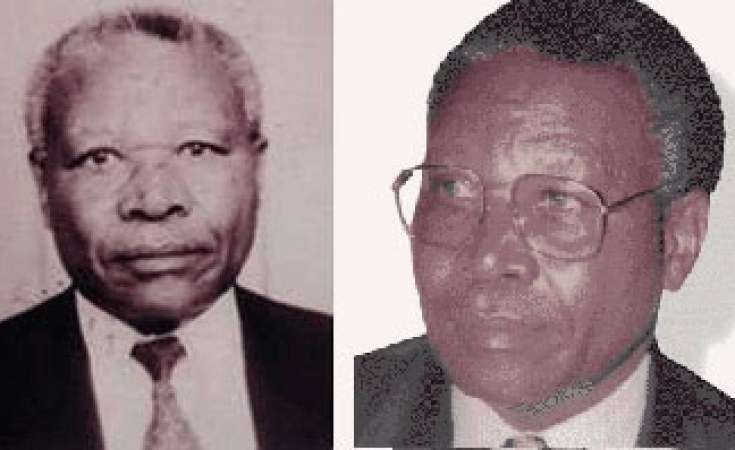The Hague-based UN court, on Thursday September 29, commenced hearing the case of Félicien Kabuga, a key suspect of the Genocide against the Tutsi.
The 89-year-old who was a businessman before and during the genocide, is charged with seven counts including: genocide, complicity in genocide, direct and public incitement to commit genocide, attempt to commit genocide and conspiracy to commit genocide.
Other charges include persecution and extermination - both as crimes against humanity.
He is being tried by the International Residual Mechanism for Criminal Tribunal, which took over from the International Criminal Tribunal for Rwanda.
During Thursday's hearing, the prosecutors presented to court their opening statement in which they detailed how Kabuga provided weapons, financial and moral support towards the atrocious genocide against the Tutsi.
They said in detail how Kabuga enjoyed the trappings of power before and during the Genocide, which he partly derived from his personal ties with ex-President Juvenal Habyarimana.
Kabuga's two daughters were married to Habyarimana's sons, prosecutors said.
Prosecutor Rashid S. Rashid told the court how hate radio RTLM was a brain child of Kabuga, which was established to propagate hate towards the Tutsi in the run up to and during the Genocide.
He said that the infamous radio picked up the mantle of Hutu power propaganda, rebroadcasting much of the anti-Tutsi material, including the infamous speech by Leon Mugesera in which he called for the throwing of the Tutsi in River Nyabarongo so that they can go back to where they came from by way of River Nile," to which Nyabarongo is a tributary.
The radio was also used to popularlise the so-called Hutu ten commandments which had earlier been published in Kangura, an extremist newspaper, among other virulent material targeting the Tutsi.
On the 6th of April 1994 when President Habyarimana's plane was shot down, RTLM's hate-filled rhetoric transformed immediately into a constant frenzy of articles for extermination, the prosecutors told the judges.
Over the next three months, the prosecutor added, RTLM called on Rwandans to kill the Tutsi and exterminate them from the surface of the earth to make them disappear for good.
"It warned that the Hutu would fight them endlessly and follow them into the countries where they fled. The radio station assured listeners that these people would never escape us until we exterminate them," they added.
During the session, the prosecutors played a couple of clips from RTLM's broadcast of that period, where among other hate propaganda, they called for the merciless killing of the "cockroaches."
"You will hear (during the coming days) from Francois Xavier Nsanzuwera that RTLM named Desiree Nshungaguyinka as an inkotanyi and read out his car's number plate on air. That same day, Nshunguyinka's car was stopped at a roadblock. He and his relatives were taken from the car and killed," the prosecutors told the court.
They added: "You will hear evidence that journalist Noel Hitimana saw Second Lieutenant Desire Mudenge escorting a group of Tutsi to safety and broadcast his name on RTLM. Mudenge was promptly stopped at a roadblock in his car and killed along with all of his passengers."
Among other things, the prosecutors narrated how on the 17th of April 1994, the RTLM studios were hit by an artillery shell and temporarily went off air, and Kabuga showed up at the scene and was heard encouraging the journalists to continue "facing up to the inyenzi."
He later visited the Red Cross Hospital to check on Noel Hitimana, an RTLM journalist who was injured in the shelling, and here, according to a witness account, Kabuga was heard telling him about "a store of weapons in Gikondo where he had a large commercial warehouse facility."
The prosecutors also highlighted Kabuga's direct support to Interahamwe in the form of weapons, money and moral encouragement.
"His contribution predated the 6th of April 1994 and escalated significantly as the killings escalated," they said.
"Once the genocide started, the Interahamwe (militia) participating in the killings used the Muhima building (belonging to Kabuga) to rest, get uniforms and to restock food and supplies," they added.
An eye witness cited by the prosecutors said the Interahamwe converged at the building on the morning of 7th April and were loaded onto vehicles belonging to the businessman.
"Kabuga himself arrived at the building's courtyard dressed in Interahamwe kitenge. He spoke to several detained Tutsi men and then to the Interahamwe who were guarding them. Kabuga left the site and soon after those Tutsi men were taken away in a truck," the prosecutors said.
The Prosecution argued in conclusion that the evidence will show "that Félicien Kabuga, acting in the cause of extremist beliefs, played a key part in bringing about the crimes and the almost unimaginable suffering that was unleashed across Rwanda in 1994."
The proceedings will continue on Friday.
Kabuga was arrested in May 2020 in Paris, France, putting an end on a 26-year manhunt for the man, who earned the nick-name 'Financier of Genocide'.


